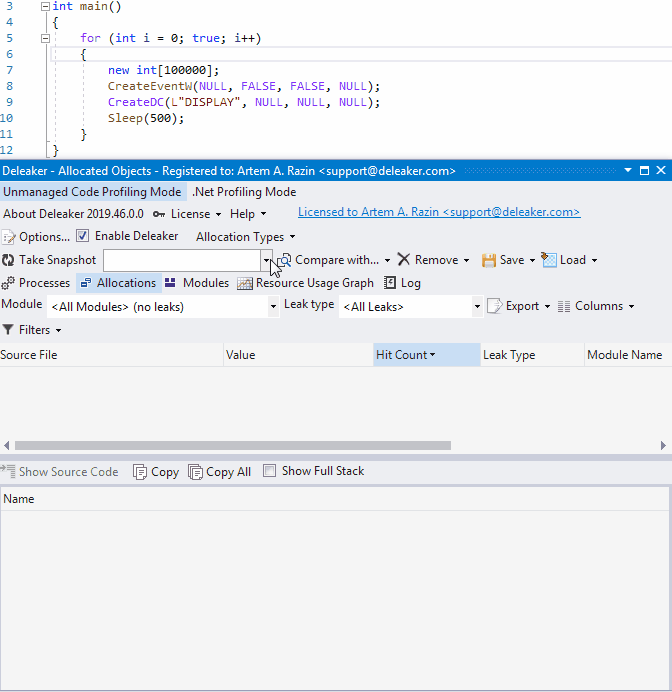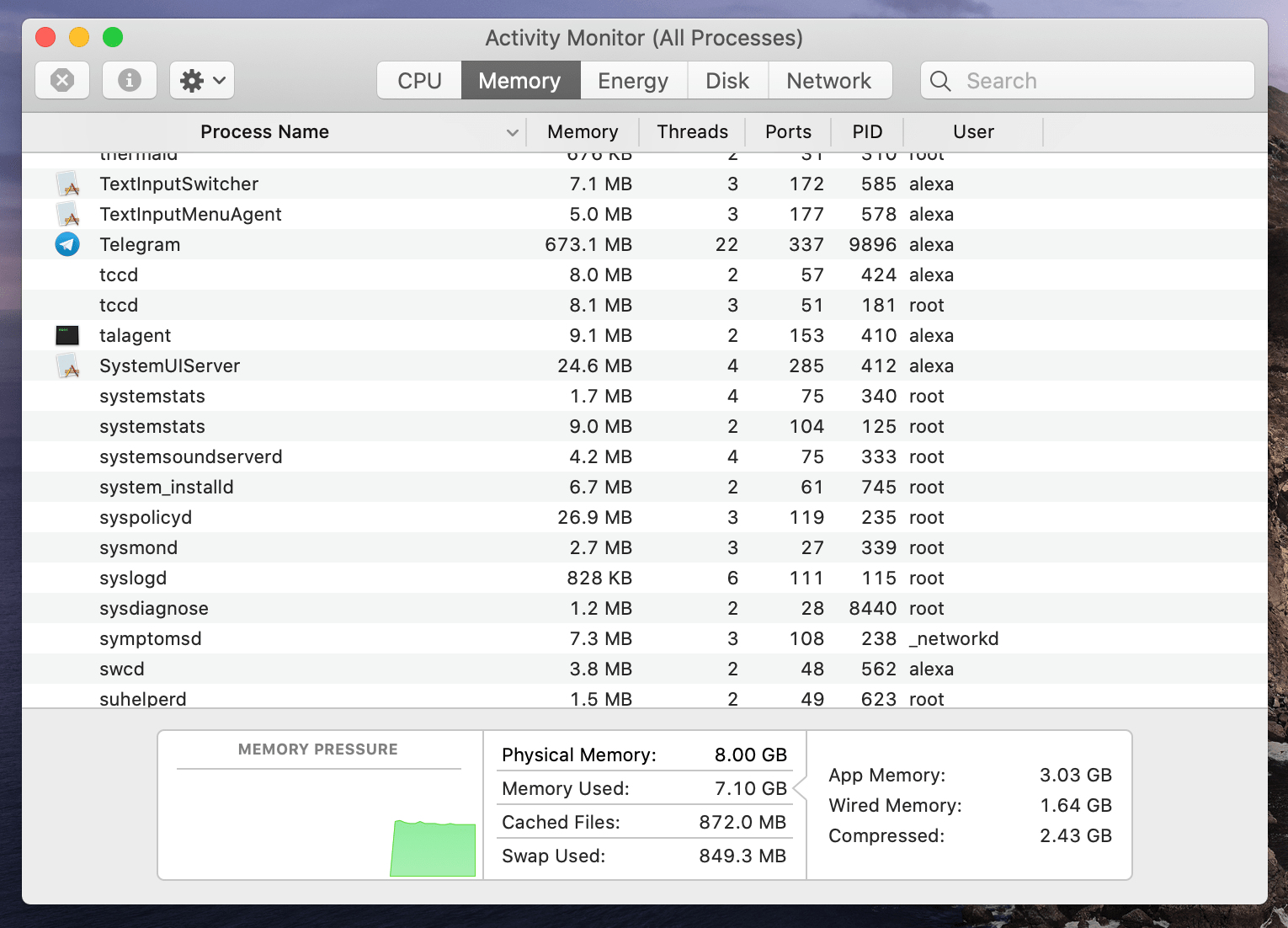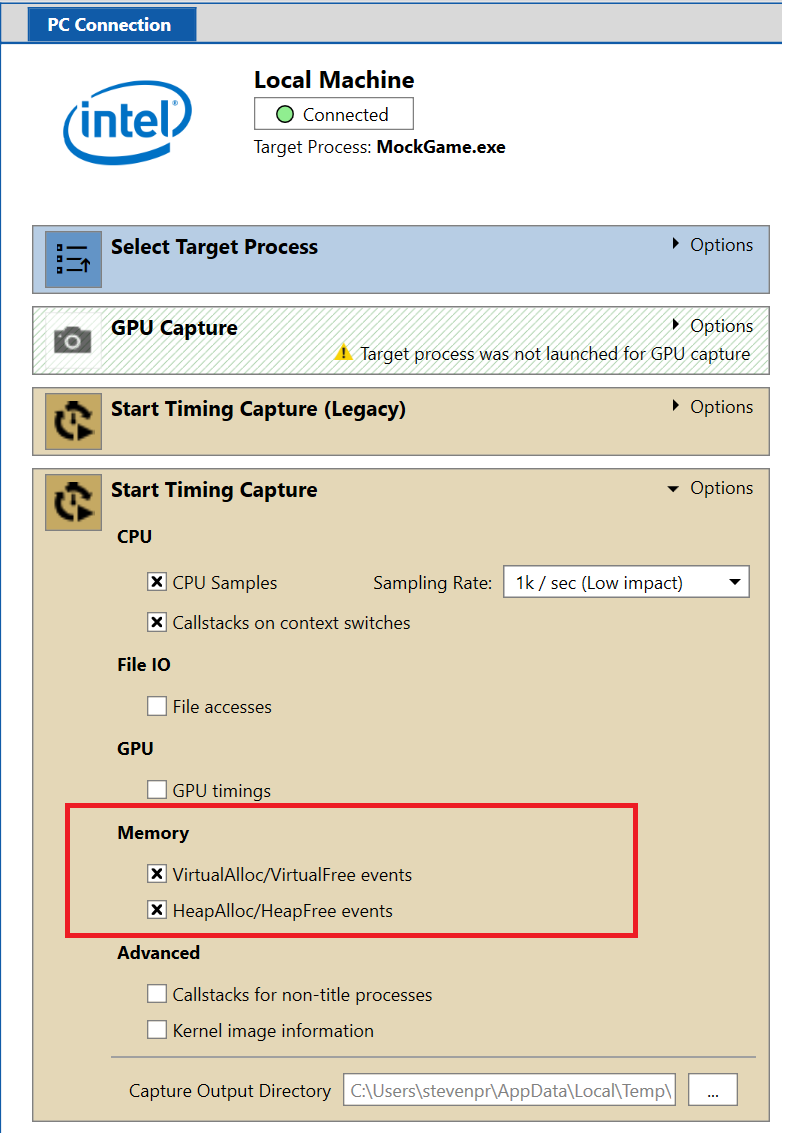
- Check for memory leaks mac mac os x#
- Check for memory leaks mac software#
- Check for memory leaks mac code#
Remove first frame from message, if any.
Check for memory leaks mac code#
That for I have to look closely what my code does and consult the API reference of czmq: Let’s first tackle the bigger leak at kt_server.c:119: msg->msgData = zframe_strdup(zmsg_pop(m)) Reading the stack-trace when we go up a few stack frames while skipping the internal calls of zeromq we see two matching lines: kt_server.c:115 and kt_server.c:119. Which shows I’m leaking memory in my code in two places. =3955= ERROR SUMMARY: 14 errors from 14 contexts (suppressed: 2 fro =3955= For counts of detected and suppressed errors, rerun with: -v =3955= To see them, rerun with: -leak-check=full -show-reachable =3955= Reachable blocks (those to which a pointer was found) are n =3955= still reachable: 57,376 bytes in 62 blocks

=3955= possibly lost: 1,256 bytes in 12 blocks =3955= indirectly lost: 0 bytes in 0 blocks =3955= definitely lost: 61 bytes in 2 blocks =3955= 36 bytes in 1 blocks are definitely lost in loss record 15 =3955= 25 bytes in 1 blocks are definitely lost in loss record 13 =3955= in use at exit: 58,693 bytes in 76 blocks Then after one I killed my server binary with ctrl-c and got a nice output: Then you are ready to go hunting memory leaks! Start valgrind as following: Personally I recommend clang since it produces better error output. Using -pedantic -Wall allows the compiler to warn you about every little mistake you write, always a good idea. configure CFLAGS="$CFLAGS -g -O0" CXXFLAGS="$CXXFLAGS -g -O0"Īnd evidently your code has also to be built with debug symbols and optimizations turned off, I’ll show you how this looks like in my Makefile:ĬFLAGS = $(BASICOPTS) -pedantic -Wall -std=c11 So make sure you invoke the configure script as follows: For such cases I recommend the Fedora Security Spin which comes with a huge load of tools aimed at security, auditing, research, rescue and obviously developper.īut before analyzing you need to tweak a few things: If you compile third party libraries by yourself consider passing the compiler flags -g -O0 to make sure the compiler produces debug symbols and doesn’t optimize too much making it harder to find the leaks.


Check for memory leaks mac mac os x#
But since valgrind warns that their support on Mac OS X being broken I had to switch over to Linux. You can easily recognize such problems by looking at the RES column, if this value increases without clear reason you have somewhere a memory leak.įor this type of problem you take valgrind. So I just ran the server and three clients in a endless loop: while true do binary doneĪ quick look in htop revealed that my code leaked memory, not much per loop (around 20-30 Bytes) but still: In code which shall be once shipped in productive environment this is fatal. Obviously in such situations you will a have an eye on a process monitor like htop. While writing C code for a networking library I did some simple stability tests by setting up a simple server replying to a client query, no magic at all just hard coded strings.
Check for memory leaks mac software#
I assume you are confident using a shell, installing software and generally building software from source.


 0 kommentar(er)
0 kommentar(er)
